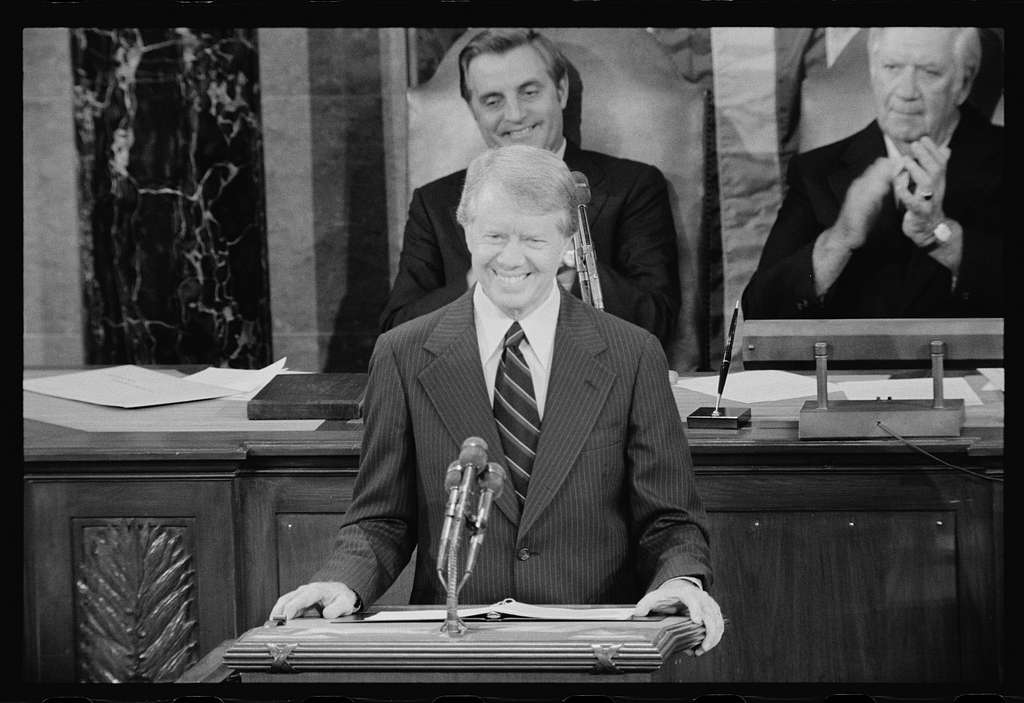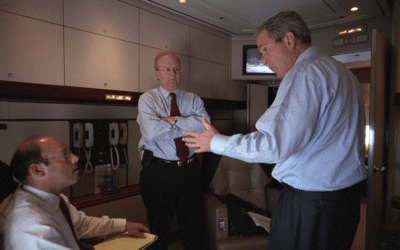One way President Biden can “Build Back Better” is following the example of one of the greatest deregulators to sit in the Oval Office: Jimmy Carter. Whilst most think of Carter as a standard New Deal-Great Society liberal, deregulation was a major part of Carter’s economic agenda and one of the greatest aspects of his legacy. It’s something that Carter and Reagan had in common, not something that set them apart.
Carter—and other leading progressives at the time such as Ralph Nader—understood the Golden Rule: whoever has the gold makes the rules. Regulation frequently, if not always, benefits big businesses who can help shape it at the expense of small businesses and most importantly, consumers.
Beginning with the Great Depression, the Civil Aeronautics Board (CAB), set airline routes, flight, schedules, and even prices. The result was 10 airlines enjoyed a de facto government-protected 90% of the air travel market: a monopoly with extra steps. This supposedly “pro-consumer” regulatory system made flying unaffordable for many Americans. Consequently, Carter signed the Airline Deregulation Act of 1978, ending the CAB’s power to control air travel. The result was new airlines entering the market offering lower prices and expanded routes. Deregulation made air travel affordable and accessible for every American. Whereas less than 30% of the public had flown commercially in 1976, 60% of Americans were booking at least one round trip flight per year by the turn of the century.
Further, Carter also pushed Congress to deregulate trucking and railroads. Before President Carter signed the Staggers Rail Act of 1980, the rate of return on railroad investments was only 2.7%, compared to more than 10% for comparable industries. This caused many railroad companies to file for bankruptcy. Following the passage of the Staggers Act, railroads could compete on price, which consequently strengthened the industry while benefiting consumers. Economists with the American Consumer Institute found that “From 1980 to 2020, taking account of inflation, the industry’s productivity has increased 159%, shipping volumes have increased 57%, revenues have dropped 13%, and prices have plummeted 44%.”
One of President Carter’s key allies in his deregulatory push was none other than the Senate’s “liberal lion” Edward Kennedy. Thanks in large part to his then-staffer and future Supreme Court Justice Stephen Breyer, Sen. Kennedy recognized the New Deal-era regulations were helping big business monopolize the American transportation sector to the detriment of consumers. As Justice Breyer, said of airline regulations “…all the groups you’d think regulation was good for, and would want it—the consumers, the unions, even Ralph Nader—the economists, different people—they all say it’s bad? Who are the only people who like it? The airlines! They love it!”
Sen. Joe Biden supported President Carter’s deregulatory efforts. (Yes, he has been in Washington longer than most Americans have been alive.) Unfortunately, President Biden seems to have forgotten how Jimmy Carter, Ted Kennedy, Ralph Nader, and other liberals showed how free market means can achieve progressive ends.
Even worse, while Carter and his allies took a page from conservative deregulators to achieve progressives ends, today many conservative Republicans are taking a page from progressive regulators to “get back” at Big Tech. For example, some conservatives such as Missouri Sen. Josh Hawley are supporting Minnesota Sen. Amy Klobuchar’s S.2992, the American Innovation and Choice Online Protection Act. This act forbids Internet companies above a certain size from requiring other companies to purchase certain services as a condition of using the companies’ platform. The main victims of this legislation would not be “Big Tech” but small business which benefit from being able to sell their products through Amazon Prime and the millions of consumers who are able to patronize small business they would never even have heard of were it not for Amazon Prime.
As a libertarian who grew up with gas lines, inflation, and disco, I rarely wax nostalgic for our 39th President. However, when it comes to regulatory policies, we could all appreciate a de-regulator like Jimmy Carter again.
This article was originally featured at RealClearMarkets and is republished with permission.































